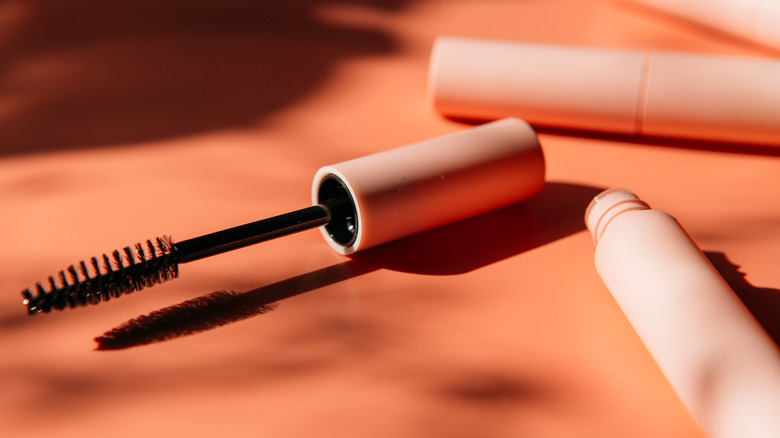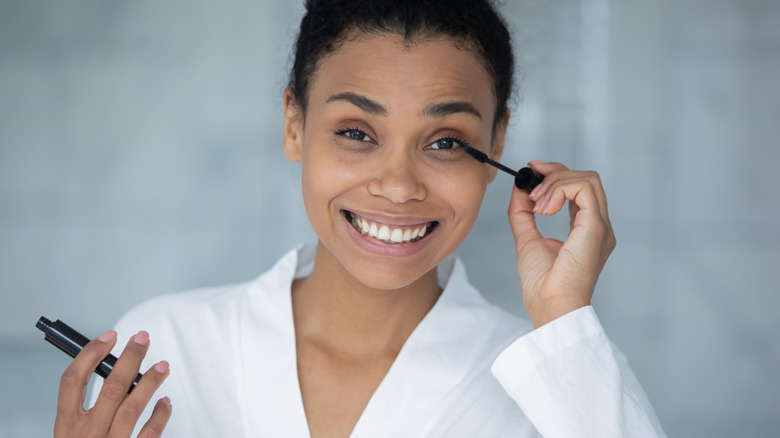Your Mascara Might Be Bad For You. Here's Why
Because the sensitive skin on our face is often prone to irritation and breakouts, picking out safe makeup products is one way to help keep our skin healthy. However, even if you're choosing quality makeup items, there are still ways in which these products can pose health risks depending on how you're using them — and mascara is one of those products.
According to Entrepreneur, the use of mascara can be traced back to Egypt, in which ingredients like burnt almonds, crocodile droppings, honey, kohl, and water created a mixture to thicken lashes and provide decoration and spiritual protection for both men and women. The first mascara product was created by perfumer Eugène Rimmel and was available for purchase in 1872. Early iterations of mascara products contained harmful components such as those used in hair dyes, which were known to cause blindness (via WebMD).
Nowadays, drugstore mascaras are made up of oils, waxes, preservatives, coating polymers, and carbon black or iron oxide pigments, according to WebMD. Mascara can often be found in two forms: waterproof or emulsion-based. Waterproof mascaras are designed to be long-lasting, while emulsion-based mascaras are more likely to smear. Either may contain harsh chemicals or contaminants that can put you at risk.
What's really in your mascara tube
According to the Harvard T.H. Chan School of Public Health, waterproof mascaras may contain potentially harmful chemicals. While examining over 200 makeup products, researchers found that a highly toxic chemical known as fluorine was present in 75% of mascara samples tested.
Additionally, the New York Post reports that if you're diluting your mascara with water, it can cause bacterial contamination. And swapping mascaras with friends can put you at additional risk. Demodex mites live on our eyelashes and can get transferred to others via your mascara brush. An infestation of these bugs can cause symptoms such as crusty eyes, yellow discharge, burning sensations, inflammation, eyelash loss, and vision problems, according to Washington Eye Doctors.
Lastly, if you're holding onto your mascara far beyond its expiration date or improperly storing it, you may be more prone to bacterial exposure (via Consumer Reports). Leaving mascara in a baking car above 85 degrees Fahrenheit, or using old mascara for longer than three months can foster bacterial growth, particularly if you notice discoloration or if the product is starting to smell.


